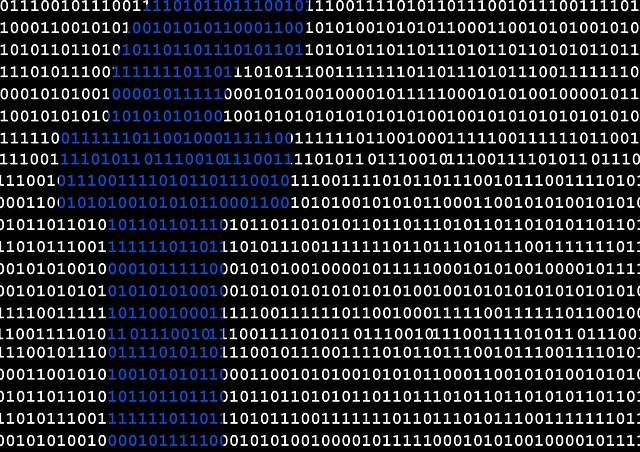How to Prevent Facebook from Sharing Your Personal Data
It is no secret anymore that the data you have on Facebook is also available to third-parties. App developers, advertisers, and other organizations all pay money to be able to track you and pitch custom highly targeted ads. It’s all about marketing. No one can deny that Facebook has failed massively at protecting user data and privacy. By signing up with the social media giant, you are instantly giving away your online privacy it seems. There are a few steps you can take, however, to minimize how much of your personal info Facebook gets to share with advertisers and third-party apps. Take a look at how to prevent Facebook from sharing your personal data in the guide below.

How to Prevent Facebook from Sharing Your Personal Data
The Cambridge Analytica scandal
Back in 2016, Cambridge Analytica, a UK-based company gathered private data on 50 million Facebook users. They used this data to place targeted ads for the Donald Trump Presidential campaign. But they did so without breaching any data security measures.
The stellar degree of data collection could only happen because of Facebook’s lax security measures. They recently discontinued API enabled third-party apps that collected extensive personal data of users without their consent.
After the scandal, Facebook apologized for disregarding user privacy and ensured that steps were underway to improve privacy. But the question is, can you trust them? And it doesn’t mean you should get off Facebook and remove your data. Instead, you can now manually enhance your security settings to get the maximum protection.
Facebook Security Changes the Must be Made Immediately
In light of the Cambridge Analytica scandal, Facebook declared that it has introduced changes to enhance user control over personal data security. These involve imposing new restrictions on third-party apps which require access to Facebook accounts.
Along with this change was the closing of “Partner Categories” ad segment, which enabled data collection based ads. Another move involves limiting the developers’ ability to see profiles. Now they would only be able to see users’ name, display picture, and email id.
However, this might not be enough. At the very least, you should get the mental satisfaction of total security by making the following additions to your FB account.
Turn Off Apps That Are No Longer In Use
If you go to the App Settings page, you will see all the apps that are currently accessing your FB account. This may include apps that you got rid of a long time ago.
This page will show you what data has already been shared with the apps. You can also choose to remove info you do not want to share any longer. According to Facebook, any apps that are not used for over three months get their data access restricted. However, it would be wiser to just delete the apps no longer in use.
For this, just go to the Settings menu on your FB account and select Apps. You can also go to the App Settings page straight off.
Un-Platform your Settings
If you want to not have any of your data shared, the best thing to do is to just turn off the platform altogether. But there is a trade-off here. Doing this will not allow you to use your FB account to log in to other sites So it is up to you how much you want to use a social media site to facilitate your online activities.
For this, go to the “App Settings” page and select “Edit” beneath the “Apps, Websites and Games” segment.
What Happens When FB’s App Platform is disabled?
Disabling your Facebook page is easy but it can have other effects too. Here are some changes you may experience after disabling your Facebook page.
- You can’t use your FB account to log in to other websites or open other apps.
- Previously installed apps might delete your info and accounts depending upon their policies.
- Certain games cannot be played.
- App-driven posts might get removed from your wall.
- Social Plugins will become non-functional. Sharing content through them will no longer be possible.
If you’re okay with these changes, click the “Turn Off” button. Your Facebook account will now be disabled.
Choosing Ad Preferences
Preferences help you decide what kind of ads you want to see because you cannot completely avoid Facebook ads. You can choose to change and manage your ads and their functioning simply by going to the Ad Preferences segment.
How Much Privacy Do You Actually Have?
The best thing to do is to check out the “Privacy Settings and Tools” page and ensure your profile info is restricted. This means that only your friends will be able to see what you post online. Another thing you can do here is to check the posts you are tagged in. If you think any of them are compromising your security, just un-tag yourself from them.
What’s Next on The Security Horizon: “Access Your Information” Data Management Feature
Another announcement made by Facebook is launching the “Access Your Information” initiative over the coming weeks. This new feature will enable users to see their previous activity and manage it from there. This might be a very helpful feature for anyone conscious enough to control their privacy.
Prevent Facebook from Sharing Your Personal Data – Conclusion
Facebook is certainly useful and fun. However, it’s important to be careful about the information you share with others. If you’ve already taken care of your privacy, it’s a great thing. However, if you haven’t, now is the time to stay safe from information leaks.





